
- •Аннотация
- •Содержание
- •Unit 1 6
- •Unit 2 19
- •Unit 7 77
- •Unit 8 93
- •Unit 1 lexical material: About Myself
- •I. Read and translate the texts given below. Answer the questions.
- •Text 1 Zackary’s Story
- •Vocabulary
- •Answer the questions
- •Grammar: The Noun Простые и производные существительные
- •Синтаксические функции существительного
- •Имена существительные исчисляемые и неисчисляемые
- •Образование множественного числа у существительных
- •Притяжательный падеж существительных.
- •Exercises
- •This is – these are; that is – those are; there is – there are; it is – they are
- •This is a fast train – These are fast trains
- •For example: the voice of my mother – my mothers’ voice
- •Additional study: People around me. My family.
- •I. Translate the texts into English
- •II. Translate the dialogues
- •III. Speak to your group mate about your college. Discuss what you like or dislike.
- •IV. Write down a list of questions you want to ask your group mate about his or her family. Then change the lists, write down the answers and give it back.
- •V. Read and translate the text “What is a family?”
- •VI. Discuss the text given above with your group mate and answer the question:
- •VII. Read and translate the text.
- •VII. Look at the family pictures and describe them like it was done in the texts given above
- •Unit 2
- •I. Read and translate the texts given below. Answer the questions.
- •Vocabulary
- •Answer the questions
- •Text 2
- •Vocabulary
- •Answer the questions
- •Text 3
- •Vocabulary
- •Answer the questions
- •Grammar: The Pronoun
- •Группы местоимений в английском языке.
- •Заменяющая существительное: mine, yours, his (hers, its), ours, yours, theirs
- •Exercises
- •Additional study: a Real Friend. Appearance.
- •I. Read and translate the text “If you want to have a friend”
- •II. Answer the questions
- •III. Read and learn the following material How to describe a person’s appearance
- •I. Eyes
- •IV. Read and translate the texts
- •V. Describe persons on the pictures
- •I. Read and translate the texts and answer the questions
- •Vocabulary
- •Answer the questions
- •II. Make up your own sentences with the vocabulary given in each text
- •III. Look at the speech patterns speech patterns
- •IV. Make up your own examples with speech patterns
- •V. Make up dialogues between Derek and Tamara on the following topic “Tell me about your normal weekday”
- •VI. Answer the following questions:
- •VII. Speak to your friend about your weekdays using the vocabulary and speech patterns
- •VIII. Write down a composition about your weekday
- •IX. Retell your composition grammar: The Numerals
- •I have three questions to ask.
- •Exercises
- •It was my (2) visit to a doctor. It was my second visit to a doctor.
- •Additional study: Weekdays
- •I. Translate the text into English
- •II. Play out the dialogues
- •III. Say how much it takes you to …
- •Unit 4 lexical material: My Day-off
- •I. Read and translate the texts and answer the questions
- •Text 1
- •Vocabulary
- •Answer the questions
- •II. Make up dialogues between Colin and Anna on the following topic “Tell me about your normal day off”
- •III. Speak to your friend about your days off using the vocabulary
- •IV. Answer the questions:
- •V. Write down a composition about your day offs
- •VI. Retell your composition grammar: The Article
- •Употребление неопределенного артикля
- •4. Устойчивое сочетание.
- •Употребление определенного артикля
- •Употребление “нулевого” артикля
- •Exercises
- •Additional study: Day-offs
- •I. Read and translate the text
- •II. Read and translate into English
- •I. Read and translate the texts and answer the questions
- •Vocabulary
- •Answer the questions
- •Lisa’s hobby
- •Vocabulary
- •Answer the questions.
- •Sasha’s hobby
- •Vocabulary
- •Answer the questions
- •II. Make up your own sentences with the vocabulary given after each text
- •III. Look at the speech patterns speech patterns
- •Grammar: The Adjective Простые и производные прилагательные
- •Наиболее распространенные суффиксы:
- •Наиболее распространенные префиксы:
- •Степени сравнения прилагательных
- •Interesting – more interesting – the most interesting
- •Правила прибавления суффиксов – er, - est к основе
- •Exercises
- •Additional study: Hobby
- •I. Read and translate the text “What is a hobby” What is a hobby?
- •Vocabulary
- •Variety – разнообразие
- •Value – ценность
- •Valuable – ценный
- •II. Answer the following questions
- •III. Find the equivalents in the text
- •IV. Complete the following sentences
- •V. Translate and play out the dialogues
- •I. Read and translate the texts given below. Answer the questions.
- •Vocabulary
- •Answer the questions
- •Text 2 Kelly’s house
- •Vocabulary
- •Answer the questions
- •Text III Misha’s house
- •Vocabulary
- •Answer the questions
- •Speech patterns
- •VIII. Translate from Russian into English.
- •IX. Give full answers to the questions.
- •X. Draw a picture of your apartment or your house, or your dream house and describe it.
- •XI. Write a composition about your house using the vocabulary and speech patterns and some addition information.
- •XII. Retell your composition. Grammar: The Present Simple Tense and The Present Continuous Tense
- •Ед.Число
- •Мн.Число
- •Настоящее простое время употребляется:
- •I write many letters every day.
- •Например:
- •Настоящее длительное время употребляется:
- •1. Для выражения действия, протекающего в момент речи или в настоящий период времени.
- •Она скоро придет
- •Образование настоящего длительного времени.
- •Exercises
- •Additional study: House and apartment plans
- •I. Have a look at the house plan given below and describe it using the following plan:
- •II. Read and translate the text.
- •Unit 7 lexical material: Education
- •The British Educational System
- •Vocabulary
- •Infant school – младшая начальная школа
- •Retell the text under following plan:
- •II. Read about two famous Universities in England
- •III. Read the text, translate it and make the tasks The usa Educational System
- •Vocabulary
- •Vocational – профессиональный
- •Answer the questions
- •My younger sister Hailey goes to the elementary school, where she studies the abCs and plays active group games with other children.
- •Find the equivalents in the text for:
- •The system of schools in the usa
- •The system of higher education in the usa
- •IV. Read the text, translate it and make the tasks Russian Education System
- •Vocabulary
- •Answer the questions
- •Find the equivalents in the text for:
- •Retell the text under following plan:
- •Grammar: Modal Verbs
- •Кроме модальных глаголов, в английском языке существуют эквиваленты: To have to – выражает необходимость в силу обстоятельств
- •To be able to – выражает возможность совершения в будущем.
- •Exercises
- •Additional study: My College
- •I. Read and translate the texts about students from England, translate them and answer the questions text a
- •Answer the questions
- •Answer the questions
- •II. Read and translate the texts about students from England, translate them and answer the questions
- •Answer the questions
- •Answer the questions
- •III. Read the text “Typical student” and answer the question: What type of student do you consider yourself to belong to? Typical Student
- •Unit 8 lexical material: My future profession
- •I. Read and translate the text “Choosing a future profession”
- •II. Answer the questions.
- •III. Make up short dialogues on the topic “Future profession” between:
- •IV. Read and translate the text “My future profession” My future profession
- •V. Speak about how your plans for the future got changed.
- •VI. Read and translate the text “I want to be an economist”
- •I want to be an economist
- •Vocabulary
- •VII. Discussion questions
- •VIII. Write down a composition called “My future profession” using the texts. You must touch upon the following problems:
- •Grammar: Past Simple
- •Образование Past Simple
- •I saw him before я видел его раньше
- •I didn’t see him before я не видел его раньше
- •Exercises
- •Additional study: Professions
- •I. Read and translate the text “I want to be a programmer”
- •II. Read and translate the text “I want to be a land manager”
- •III. Read and translate the text “I want to be a cadastre”
- •IV. Read and translate the text “I want to be an architect”
- •V. Read and translate the text “I want to be a builder”
- •Unit 9 lexical material: My City
- •I. Read and translate the text “My city”
- •Astrakhan’s history
- •Answer the questions
- •VI. Agree or disagree. Prove your point of view.
- •VII. Retell the text “Astrakhan’s history” grammar: The Past Continuous Tense
- •Exercises
- •I was reading a book at ten o’clock yesterday.
- •Additional study: Astrakhan
- •I. Read the text “Astrakhan’s cultural life” Astrakhan’s cultural life
- •II. Answer the questions
- •III. Make up dialogues about your cultural life in Astrakhan
- •IV. Read, translate and play out the dialogue
- •V. Read the text about Astrakhan Kremlin Astrakhan’s Kremlin
- •Vocabulary
- •Impression - впечатление
- •Unit 10 lexical material: My country
- •My country
- •Vocabulary
- •Grammar: The Future Simple Tense
- •I shall not go to the university tomorrow.
- •Exercises
- •Is nice tomorrow, I shall go to the park.
- •Additional study: Russia
- •I. Read and translate the text “Holidays in Russia” Holidays in Russia
- •Unit 11 lexiacal material: Great Britain
- •II. Answer the questions
- •III. Association game. Speak about what associations come to your mind when you hear:
- •IV. Read and translate the text “British food” British Food
- •V. Compare British and Russian food
- •VI. Prepare written reports on the following topics
- •Grammar: The Future Continuous Tense
- •Образование The Future Continuous Tense:
- •Exercises
- •Additional study: British people
- •I. Read, translate and play out the dialogue
- •IV. Speak about your point of view. Do you think if it easy to be Queen or King? Would you like to be Queen or King and why?
- •V. Listen to the text “Princess Diana”
- •Words and phrases
- •VI. Read and translate the text “Margaret Thatcher”
- •Vocabulary
- •Unit 12 lexiacal material: The usa
- •I. Read and translate the text and answer the questions
- •Vocabulary
- •Valley – долина Answer the questions
- •II. Association game. Speak about what associations come to your mind when you hear:
- •III. Read and translate the text “American symbols”
- •Vocabulary
- •Answer the questions
- •1. Personal Control over the Environment
- •2. Change
- •3. Time and Its Control
- •8. Informality
- •9. Directness, Openness and Honesty
- •10. Practicality and Efficiency
- •11. Materialism/Acquisitiveness
- •V. Summarize the information you’ve got from the article and speak about every point from it in general.
- •VI. Read a short text about what the modern ordinary American typically owns.
- •VII. Read and translate the text “usa Holidays” usa Holidays
- •VIII. Compare Russian and American holidays. Do we have common holidays?
- •IX. Prepare written reports on the following topics
- •Grammar: The Present Perfect Tense
- •Образование The Present Perfect Tense
- •I have not (haven’t) done this before. Exercises
- •Additional study: Cities in the usa
- •Philadelphia - historical city of independence
- •Capital of the usa. Washington
- •Boston. City or University ?
- •Список используемых материалов литература
- •Интернет источники
Answer the questions
-
What nursery and elementary education did Kevin get?
-
Who taught Kevin in the Elementary school?
-
What subjects did Kevin take in Junior school?
-
What universities did Kevin apply?
-
Where does Kevin study now?
B
Hey, I am Miranda Tailor. I live in New York. Until I turned five my nanny educated me a little bit.
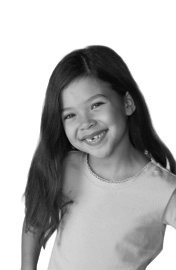
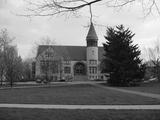
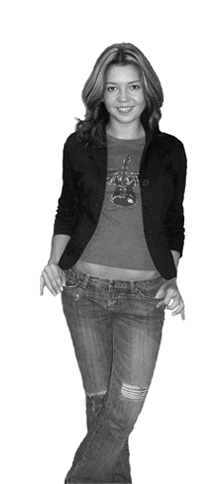
My parents though it would be great for me to study in a private school so they sent me to the St. Anna Private School in New Jersey. That’s a school for both girls and boys. The school is run by a Catholic Church.
So I studied in this school until I got seventeen. I went home on weekends and holidays, but when I grew older I preferred to spend my holidays at school with my friends. In school I shared a room with a girl named Lora and we became bet friends.
It was very hard for me to decide what college or university to enter. I was good in many subjects – in Mathematics, Physics, Foreign Languages, and Literature and so on. So I entered the Columbia University College and I study on the first course now – I don’t major in any subject for now. During the first year I get the general education and on the next year I will have to decide what specialty I want to study.
Answer the questions
-
Who taught Miranda until she turned five?
-
What school did Miranda go to?
-
Where did Miranda spend her weekends and holidays when she grew older?
-
What subjects were Miranda’s best ones?
-
Where does Miranda study now?
III. Read the text “Typical student” and answer the question: What type of student do you consider yourself to belong to? Typical Student
Who are they and how they look? In the streets, in parks, cafes, on discos, everywhere you can see young people standing together and talking about something with great interest. What are they talking about? They talk about studying, music, and clothes and about money, which will finish soon. But in spite of the problem they are never sad. At the same time students walk in town, go to cafes, discos and concerts. Students become friends very fast and forever.
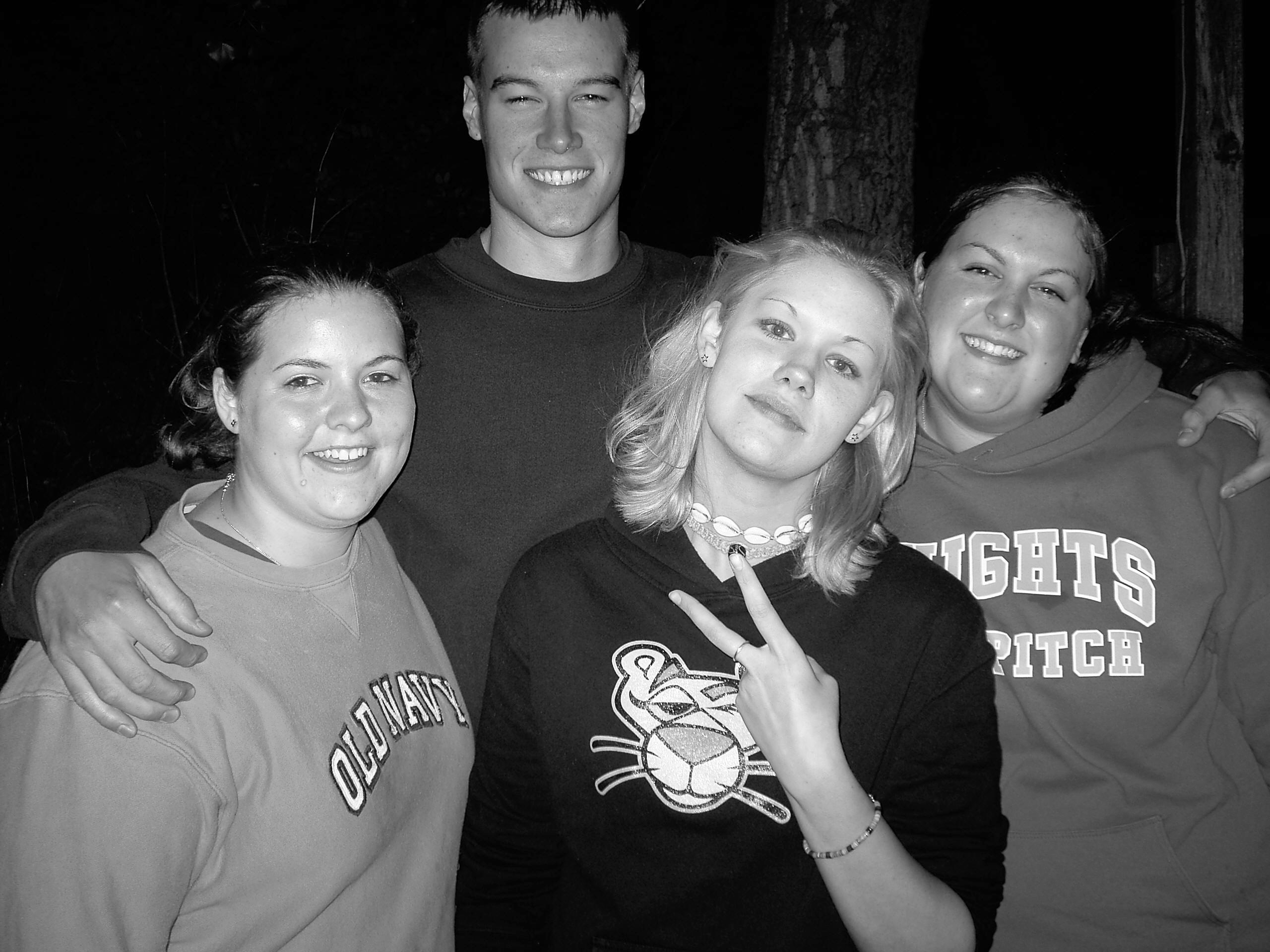
There are some different types of students. One part does nothing but study. Others have time for studying and for things they love to do. Someone likes going in for sport, some are fond of playing computer games, others like singing or dancing and so on. And there are some students who don’t want to study and want to graduate the university with good and excellent marks.
Students wear everything that is comfortable to them. They listen to different types of music. Pop, rock, rap these are only few types they listen to. And all students like sleeping. So they are very different.
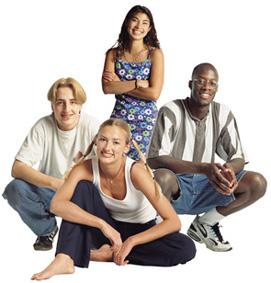
Unit 8 lexical material: My future profession
I. Read and translate the text “Choosing a future profession”
Finishing school is the beginning of the independent life for millions of school leavers. Many roads are open between them: vocational and technical schools, institutes and universities. But it is not an easy thing to choose a profession out of more that 2000 existing in the world. Some pupils follow the advice of their parents, others can’t decide even after leaving school. Let’s have a look at what some school leavers think about their future profession.
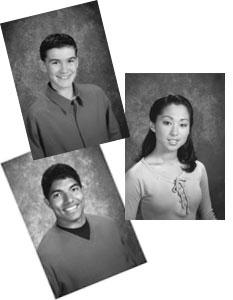
Masha: I have made my choice long time ago. I want to be a teacher. Teachers do not only teach their subjects. They develop their pupils’ intellect; form their views and characters, their attitudes to life. It’s a great responsibility!
Dima: I want to become a computer programmer. I am interested in computers. I think this profession can give many opportunities. We are living in the age of information. I think our future is just filled with computers.
Ivan: I have already decided what career to choose. I would like to be a psychologist and I want to help people to solve their problems.
Anna: I decided to enter the department of sociology. I understand the difficulties of this profession. But I believe this specialty is really needed and hope that I can help a lot of people.
Max: I like the profession of a journalist. They try to understand what is going on in the world, or the country, or the city and try to explain it to other people. Journalists can influence the history.
